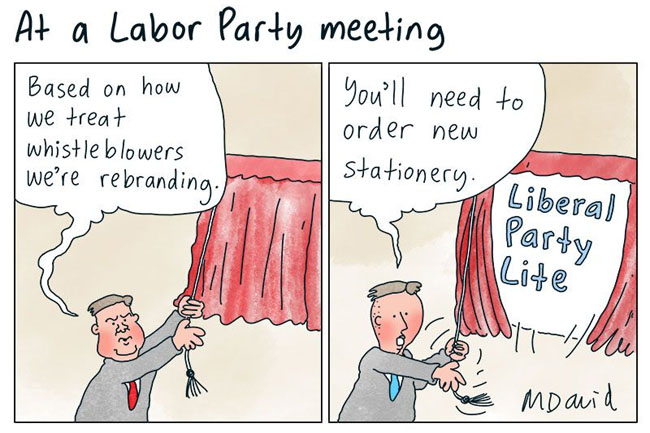The national skills crisis is influencing PM Anthony Albanese's commitment to full employment, writes Professor John Quiggin.
THE 1945 White Paper on Full Employment, produced by the Curtin-Chifley Government, was the founding document of Australia’s postwar prosperity.
The paper began by drawing a striking contrast between the disaster of the Great Depression and the national mobilisation achieved in wartime:
Despite the need for more houses, food, equipment and every other type of product, before the war not all those available for work were able to find employment or feel a sense of security in their future. On average during the 20 years between 1919 and 1939, more than one-tenth of the men and women desiring work were unemployed.
In the worst period of the depression, well over 25 per cent were left in unproductive idleness. By contrast, during the war, no financial or other obstacles have been allowed to prevent the need for extra production from being satisfied to the limit of our resources.
It is true that war-time full employment has been accompanied by efforts and sacrifices and a curtailment of individual liberties which only the supreme emergency of war could justify; but it has shown up the wastes of unemployment in pre-war years and it has taught us valuable lessons which we can apply to the problems of peace-time, when full employment must be achieved in ways consistent with a free society.
The commitment to full employment, made in the white paper, was reflected both in fiscal policy and in the legislation establishing the Reserve Bank of Australia.
To this day, the official objectives of the Reserve Bank are stated as:
- the stability of the currency of Australia;
- the maintenance of full employment in Australia; and
- the economic prosperity and welfare of the people of Australia.
Until the economic shocks of the 1970s, the commitment to full employment was delivered in practice. Even after this, the assumption that full employment could and should be restored remained dominant until the 1990s.
With this history, the announcement of a renewed commitment to full employment, made by Prime Minister Anthony Albanese in 2021, was a major step. Labor’s election campaign included not only a commitment to full employment but the promise of a Jobs Summit leading to a new white paper, modelled on that of 1945.
As Albanese observed of the Labor Government that produced the white paper:
“They knew national leadership in times of crisis was about more than mere preservation, it was a question of vision, of courage.”
The summit was duly announced on 11 July, but with some crucial changes in wording. The Jobs Summit became a “Jobs and Skills Summit”. More alarmingly, the topic of the white paper was changed from ‘Full Employment’ to ‘Employment’.
Reading the associated press releases, it becomes clear that the Government is now much more concerned about pressure from employers who are finding it difficult to hire workers while offering wages that have fallen behind inflation.
As the Sydney Morning Herald reported:
‘The national skills crisis has overtaken Australia’s broken enterprise bargaining system as the most critical issue for employers fronting Prime Minister Anthony Albanese’s jobs summit as businesses grapple to fill record job vacancies.’
The “skills crisis” is simply the way employers perceive a situation of near full employment. Instead of workers lining up at the door for every vacancy, they now face a shortage of applicants. Rather than raising wages for all their workers, they are offering sign-on bonuses, reminiscent of the “honeymoon rates” that banks used to offer to new borrowers while continuing to exploit their existing customers.
The Albanese Government has had a very disappointing start, offering nothing on climate change beyond its very weak election commitment and continuing to implement most of the policies it inherited from the L-NP. The ruinous stage three tax cuts remain on the books. But at least Albanese has been able to argue that “My word is my bond”.
When it comes to a fundamental commitment to Labor values, however, Albanese apparently finds words no longer binding.
A renewed public commitment to full employment would be transformational, making it clear that changing the Government changes the nation. If Labor misses this opportunity, it is unlikely to come again.
John Quiggin is Professor of Economics at the University of Queensland. His latest book, Economics in Two Lessons: Why Markets Work So Well, and Why They Can Fail So Badly, is out now from Princeton University Press. You can follow John on Twitter @JohnQuiggin.
Related Articles
- Repealing tax cuts: Albanese needs to forget Murdoch, act now and be bold
- Labor must reverse Morrison's submarine bungle to protect nation
- Where's Albo? Not on holiday with Dutto and ScoMo
- Albanese needs to restore trust after staff cuts backlash
- Labor needs to make tough decisions now
 This work is licensed under a Creative Commons Attribution-NonCommercial-NoDerivs 3.0 Australia License
This work is licensed under a Creative Commons Attribution-NonCommercial-NoDerivs 3.0 Australia License
Support independent journalism Subscribe to IA.















